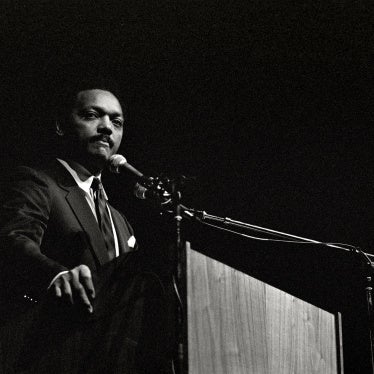When President Bush visits with Mexico President Vicente Fox today, he may find something new: a Mexican leader ready to discuss human rights problems--in Mexico and in the United States.
Fox took office in December after a campaign in which he promised to promote the welfare of Mexicans who migrated north. His new foreign minister, Jorge Castaneda, took the cause to Washington two weeks ago, announcing Mexico's intention to "take a much more active role in the defense of human rights" and describing the treatment of migrants at the U.S. border as "intolerable."
When Fox talks directly to Bush, he might be expected to recount the long history of abuses committed by the U.S. Border Patrol, which include beatings, sexual assaults and shootings of unarmed migrants. Fox also could criticize the U.S. for failing to provide adequate oversight for its Border Patrol agents, a criticism already voiced by staff members of the U.S. Office of the Inspector General, who say they lack the resources to investigate all the complaints they receive.
Fox could question the U.S. Immigration and Naturalization Service's efforts to block border crossings near population centers, a policy that has not stopped the flow of immigrants north but has prompted many to cross at remote and dangerous border areas. Forbidding terrain in these areas has led to more than 1,400 immigrant deaths from exposure since the mid-1990s. And the hostile reception of private land-holders has resulted in migrants being shot at and even killed by ranchers. Last May, for example, a rancher near Brackettville, Texas, shot a border-crosser who had asked him for water. The 23-year-old man bled to death. In December, the separatist group, Republic of Texas, announced plans to send armed patrols to the Texas border region to apprehend undocumented migrants. While the U.S. government can't be expected to regulate the desert heat, Fox could insist that it do more to rein in its unruly citizens.
Once the topic of human rights is opened, there are other issues as well. One problem that might be on the agenda is the abuse many Mexicans face in the American workplace. Migrant farm workers in particular are often denied a minimum wage and basic safety protections, and their efforts to unionize are easily discouraged by the threat of a call to the INS.
Mexico, of course, has its own human rights problems, inextricably linked to the two other major issues on the Bush-Fox agenda: trade and the war on drugs. Both presidents are committed to expanding free trade in the Americas. But the North American Free Trade Agreement side accord on labor rights has done little to curb widespread labor violations in Mexico. When, for example, U.S. officials found that Mexico's maquiladora factories routinely discriminated against pregnant women, the two governments reached an agreement to sponsor public "outreach sessions." But this did little to actually end the practice. Mexican maquilas have continued to conduct illegal pregnancy testing.
As for drugs, Fox recently announced his government's intention to fight a "war without quarter" against traffickers. But, without adequate safeguards, such an aggressive approach runs the risk of aggravating the human rights problems--arbitrary detention, torture and extrajudicial executions of alleged criminals-that already plague Mexico's criminal justice system. Also, the increasing involvement of the Mexican military in the drug war is likely to multiply the law enforcement abuses, in part because soldiers are trained for warfare more than policing and in part because they are not subject to prosecution in civilian courts.
It remains to be seen whether Fox is ready to tackle Mexico's human rights problems head on. One encouraging sign is his willingness to break with the Mexican government's long-standing practice of ignoring and silencing its critics. During his campaign, for instance, he promised to intervene in the case of a former general who was jailed for criticizing the military's human rights practices. And in December, he announced he would lift visa restrictions that made it more difficult for international organizations to monitor human rights practices throughout the country. Fox also says he is ready to talk to Mexico's most famous critic, Subcommander Marcos, the leader of the Zapatista rebels in Chiapas.
For the moment, however, the general remains in jail, visa restrictions for human rights groups still exist and peace negotiations in Chiapas have not been renewed. If Fox fulfills these promises, he will be in a better position to challenge Bush about human rights at future summits.








